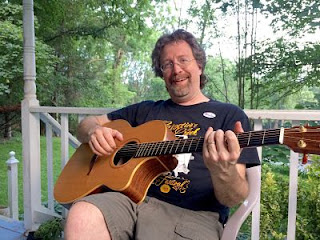So, Why DO We Do This?
It is an age-old human question to wonder where we come from, and how we got here. Maybe we've inherited some things from elderly relatives, or a grandparent keeps a family tree with a variety of tantalizing mysteries. Maybe you are an adoptee looking to learn your birth origins.
Whatever leads you into this journey, congratulations! For we are living in a "Golden Age of Genealogy." Never before have we had so many powerful tools, from cheap DNA test kits to literally tens of millions of digitized old records in many countries easily searchable on the internet - and the character recognition technology to do so. You can learn more about your family history from the comfort of your own home than has ever been previously possible. And it is possible to make more mistaken assumptions as well.
The most common DNA tests done by tens of millions of people evaluate our autosomal DNA. In general, our autosomal DNA tests in theory should be able to identify and confirm ancestors born in the early to mid 1800s, a time when mobility was generally much less than it is now. Chances are if you can trace your family back to a specific region at that time, your ancestors may have been there for a few generations. Learning more about the history of that place may well help you find other clues.
A word of caution is important too. Not everyone in your family will share your excitement about everything you learn. Often we find that what is commonplace in our modern world was scandalous and a source of shame during the youth of some of our elderly relatives. There will be stories, and secrets, and the potential for deeply hurt feelings should always be considered. We are all human after all, and the DNA will confirm that, and that means that we consider the whole life - the good, the bad, and all the between. To do so with impartiality and sensitivity is as important as doing careful and thorough research.
So, onward then. With curiosity, and excitement, tempered a bit by human decency. In the next post I'll share a few more tips on other tools and constraints to keep close by while we explore.
NEXT UP: Before we get started, A Sharp Eye and an Open Mind
Whatever leads you into this journey, congratulations! For we are living in a "Golden Age of Genealogy." Never before have we had so many powerful tools, from cheap DNA test kits to literally tens of millions of digitized old records in many countries easily searchable on the internet - and the character recognition technology to do so. You can learn more about your family history from the comfort of your own home than has ever been previously possible. And it is possible to make more mistaken assumptions as well.
The most common DNA tests done by tens of millions of people evaluate our autosomal DNA. In general, our autosomal DNA tests in theory should be able to identify and confirm ancestors born in the early to mid 1800s, a time when mobility was generally much less than it is now. Chances are if you can trace your family back to a specific region at that time, your ancestors may have been there for a few generations. Learning more about the history of that place may well help you find other clues.
A word of caution is important too. Not everyone in your family will share your excitement about everything you learn. Often we find that what is commonplace in our modern world was scandalous and a source of shame during the youth of some of our elderly relatives. There will be stories, and secrets, and the potential for deeply hurt feelings should always be considered. We are all human after all, and the DNA will confirm that, and that means that we consider the whole life - the good, the bad, and all the between. To do so with impartiality and sensitivity is as important as doing careful and thorough research.
So, onward then. With curiosity, and excitement, tempered a bit by human decency. In the next post I'll share a few more tips on other tools and constraints to keep close by while we explore.
NEXT UP: Before we get started, A Sharp Eye and an Open Mind

Comments
Post a Comment